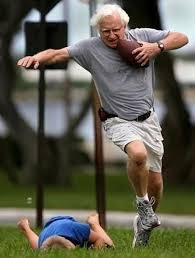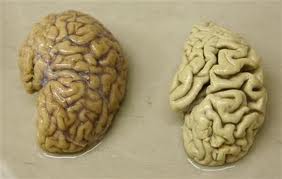By Nicholas Burrows (Exercise Physiologist)
North Sydney Sports and Chiropractic
We all know exercise is good for us and have been told that it can help reduce the risk of heart disease and diabetes. However more and more research is emerging suggesting that exercise is beneficial in a variety of areas that may come as a surprise.
Pain Relief
I must admit a certain amount of bias in this topic as my research centres around exercise and pain sensitivity but there is a growing amount of research suggesting that exercise can help with a wide variety of chronic pain issues. The problem with chronic pain is that the pain pathways to the brain become sensitised due to constant input from various conditions, for example arthritis. The result of this is that people become more sensitive to pain and things that didn’t use to cause pain suddenly do. However it would be appear that regular exercise may have be able to slow or even reverse this sensitisation. Therefore it is even more important for people with chronic pain issues to remain as physically active as possible.
Some new research has also shown that an individual’s pain tolerance can increase with regular aerobic training.
Live Longer and Stronger


New Research out of UCLA suggests that the more muscle mass you have the less likely you will die prematurely. The study also add to the growing amount of evidence that an individual’s body composition (i.e. Lean muscle mass to body fat ratio) is a much better predictor of health than the more commonly and widely used Body mass index (BMI). In other words your body weight alone does not give us enough information about your health.
Stop Brain Shrinking

While it may sound like a strange heading, it has been documented that areas in the brain shrink with age, in particular the pre-fontal cortex and hippocampus and this had been linked aged-related cognitive complaints and possibly the onset of dementia. However a recent study by the Universtiy of Pittsburgh over 100 sedentary adults and assigned them to either 30-45 minutes of walking three times a week or gentle stretching exercises. Medical scans showed small increases in brain size for both groups, but the walking group increased the most.
Crohn’s Disease
Crohn’s disease is a non-contagious inflammatory bowel syndrome that can cause abdominal pain, diarrhoea and a broad range of other symptoms. As is the case with many chronic conditions, its causes are unknown but it affects around 75 000 Australians. Recent research from the US has revealed that the risk of developing Crohn’s disease is reduced in people who perform regular physical activity.
You Decide
While the evidence presented is preliminary, it is becoming increasingly clear that exercise is beneficial for the prevention and treatment of the above and also many more medical conditions than was previously known. Coupled with the fact that it can improve overall health and if done correctly carries very little risk of side effects exercise should become a staple component of everybody’s daily routine.
If you would like to begin an exercise program or would like some advice and adjustment of your current exercises, why not come into North Sydney Sports and Chiropractic for a fitness assessment. We can perform baseline fitness assessments to give you an idea of where you are at and allow you to track your progress. Further we can provide exercise prescription or some helpful advice to allow you to reach your fitness goals.
Sources
- http://www.essa.org.au/for-media/essa-in-the-media/
- Aerobic training increases Pain tolerance in healthy individuals. Jones MD, Booth J, Taylor JL Barry BK. Med Sci Sports Exerc. 2014 Feb 5.
- Build Muscle and Live Longer: UCLA Research
- Brain Shrinking: http://www.ncbi.nlm.nih.gov/pmc/articles/PMC3622473/
- Crohn’s Disease: http://www.bmj.com/content/347/bmj.f6633.pdf%2Bhtml


